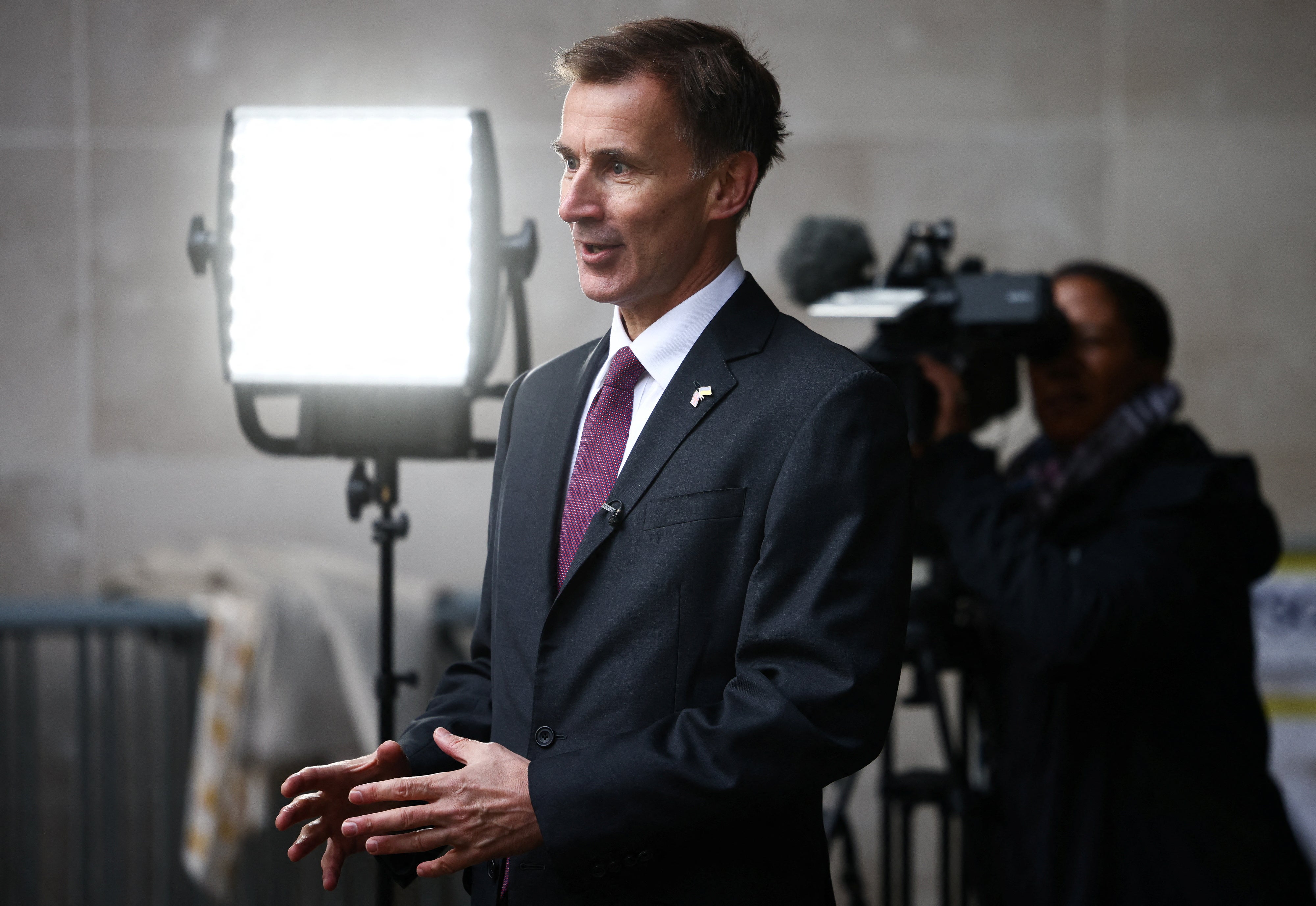Why household energy bills could be set to fall by £600
Wholesale energy prices for oil, gas and electricity have been falling in recent months, due to milder weather
Your support helps us to tell the story
From reproductive rights to climate change to Big Tech, The Independent is on the ground when the story is developing. Whether it's investigating the financials of Elon Musk's pro-Trump PAC or producing our latest documentary, 'The A Word', which shines a light on the American women fighting for reproductive rights, we know how important it is to parse out the facts from the messaging.
At such a critical moment in US history, we need reporters on the ground. Your donation allows us to keep sending journalists to speak to both sides of the story.
The Independent is trusted by Americans across the entire political spectrum. And unlike many other quality news outlets, we choose not to lock Americans out of our reporting and analysis with paywalls. We believe quality journalism should be available to everyone, paid for by those who can afford it.
Your support makes all the difference.Energy bills are forecast to drop by up to £600 this summer as a result of falling wholesale prices, a leading energy analyst has said.
Warmer weather this winter has prompted prices of oil, gas and electricity to drop rapidly, but still remain higher than pre-pandemic levels.
Analysis from energy market researchers at Cornwall Insight has predicted the average annual energy bill to fall to £3,208 from April, decreasing further to approximately £2,200 for the second half of 2023.
The prediction comes as the government continues its £400 subsidy of energy bills through its Energy Bill Support Scheme.
But caution has been urged due to the volatile market and wider political climate.
Dr Craig Lowrey, principal consultant at Cornwall Insight said: “We really don’t have a precedent to look to work out how the market will evolve in 2023.
“Right now, positive gas storage and demand reductions in Europe means the key winter period of concern is looking better.
“But, whilst today it is ‘steady as she goes’ it is practically inevitable that forecasts will at some point change again as the market wanders about in search of its equilibrium.”

Energy prices have fallen around 75 per cent since August 2022 when they peaked after a reduced supply of gas to Europe, following Russia’s invasion of Ukraine.
If the Ofgem price cap falls below the government’s current guarantee for a subsidy, it may mean the government will no longer pay out the support to household energy bills.
The support scheme has been suggested to cost £38-42 billion over its 18-month allocation.
Household energy bills are being subsidised by the government to stay below £2,500 pounds until the end of April 2023 and below £3,000 until the following March.
The prediction comes as charities have called for a “social energy tariff” to protect households on low incomes when the support scheme concludes.
However, Anders Opedal, the chief executive of one of Europe’s biggest energy companies, Equinor, has warned that higher energy prices are likely to remain and households should not expect them to return to levels seen before Russia’s invasion of Ukraine.
He told BBC Radio 4’s Today programme: “We have seen a rewiring of the whole energy system of Europe.
“We need to treat energy as something that is not abundant. We have had a lot of cheap energy in the past and we probably wasted some of it. So we need to make sure we’re making the right investments now [and] everyone wants to use as little energy as possible.”
Dr Lowrey from Cornwall Insight added: “Perspective must be maintained.
“We do not know what will happen over the coming months and there is a long way to go before anyone can be certain what the true unit rates will be beyond the summer.
“So, while declining wholesale markets and cap forecasts may be a reason to feel cheerful, nothing is guaranteed in this new European energy market.
“Reading too much, too early, into prices falling, could be just as risky as reading too much, too early into prices rising.
“Policy really needs to be “on notice” of sudden changes, and both elastic and responsive in such an environment.”









Join our commenting forum
Join thought-provoking conversations, follow other Independent readers and see their replies
Comments